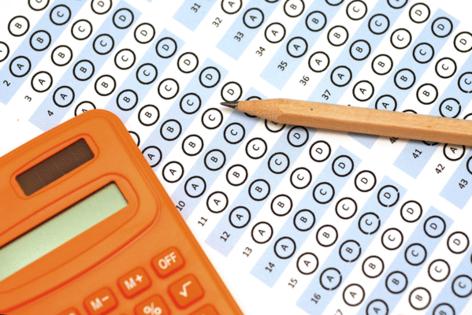Editorial: For too many American kids, math isn't adding up
Published in Op Eds
Math scores in the U.S. have been so bad for so long that teachers could be forgiven for trying anything to improve them. Unfortunately, many of the strategies they’re using could be making things worse.
It’s a crisis decades in the making. In the early 20th century, education reformers including John Dewey and William Heard Kilpatrick developed a theory — drawing from the work of Jean-Jacques Rousseau — that came to be known as constructivism. The idea was that learning happens best when students immerse themselves in a problem and find their own solution. By the late 1980s, math standards had embraced “discovery-based learning.”
Unfortunately, a robust body of research has since found that such approaches often fail early math learners (and readers, for that matter). Math rules and facts such as multiplication tables must be taught explicitly, memorized and mastered through practice. Only when this foundation is established can students progress to more complex concepts. Math, it’s often said, is cumulative.
Yet many teachers colleges are still resistant to such findings. Make math engaging, their thinking goes, and children will excel. Stop memorizing facts (it’s “rote”) and eliminate timed tests (they cause anxiety). Academics often call such educational approaches “student-centered.” Yet they lack scientific rigor and have never produced the promised gains in achievement.
Consider how children are learning to add — say, 12 + 29. Traditionally, they’d line up the figures and “carry” the 1. Kids today are taught this algorithm alongside a basket of other strategies. For example, they can “decompose” the addends by combining the numbers in the tens place (in this case, 10 + 20) and then the ones (2 + 9). Alternatively, they can round to the nearest 10 and add or subtract accordingly: 10 + 30 = 40, then add 2 and subtract 1. Or they can sort numbers into bubbles.
The brightest students may be able to make sense of this, and the richest may pay for tutors. Average students will often find it bewildering. Teachers, for their part, lament the cluttered curricula they’re required to follow and often say they’re overwhelmed by the gap between their efforts and student achievement.
In recent years, policymakers have started to recognize the shortcomings of similar approaches to literacy. More than 40 states have passed laws to ensure reading instruction aligns with sound science. The results have in many cases been dramatic: Mississippi, once ranked 49th in fourth grade reading, now comes in ninth.
Yet math hasn’t gotten the same attention. If anything, some states are moving in reverse. New York, for example, released a new set of “best practices” in May that inveigh against timed quizzes, practicing math facts and so-called explicit instruction. A group of researchers are calling for its retraction.
To be sure, there are many reasons that American schools are failing to teach math: an aversion to standardized tests, powerful teachers unions, chronic absenteeism and grade inflation, to name a few. Reversing the decline may take years. For now, policymakers should focus on a few practical and evidence-based reforms.
One place to start: teachers colleges, which prepare the next generation of educators. Too many of these programs have been captured by faddish theories that do little to help young students learn. States should work with accreditors to ensure that the coursework at such schools is rigorous, aligns with real evidence and ensures that graduates are themselves proficient in math. Students will never learn if their teachers haven’t already done so.
School districts, meanwhile, should redouble their efforts on elementary education, where interventions are most promising. Curricula should limit the number of strategies introduced to students for basic math operations. They should emphasize direct instruction and encourage regular practice. States should also consider short, standardized assessments, such as England’s successful “multiplication tables check.” Critically, education officials must reform curricula to ensure that students can meet state standards.
The decline in math scores in recent years reflects a more systemic problem: To fix what ails American education, teachers need to stick with the science and let kids get back to the facts.
____
The Editorial Board publishes the views of the editors across a range of national and global affairs.
©2025 Bloomberg L.P. Visit bloomberg.com/opinion. Distributed by Tribune Content Agency, LLC.
























































Comments